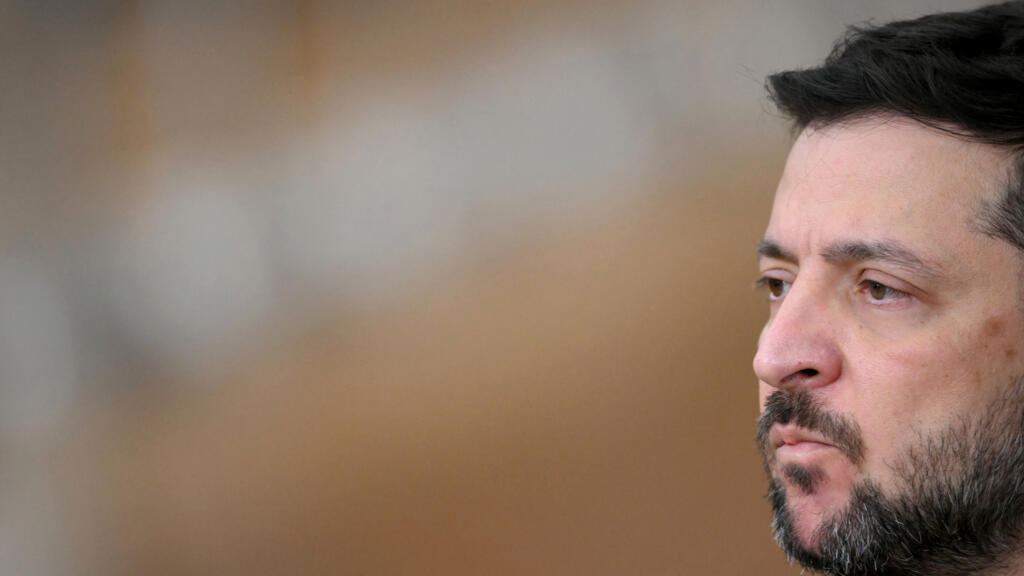
Ukrainian president Volodymyr Zelensky on Thursday urged European leaders to quickly allow his country to use €140 billion in frozen Russian assets to repair the damage caused by the three-year war with Russia.
His appeal came at a one-day summit of EU leaders in Brussels, where a new sanctions package targeting Russia’s “shadow fleet” of oil tankers was approved. A plan to ban imports of Russian liquefied natural gas was also cleared.
A plan to ban imports of Russian liquefied natural gas was also cleared.
"Anyone who delays the decision on the full decision of frozen Russian assets is not only limiting our defence, but also slowing down the EU's own progress," said Zelensky. "The time to act now and I urge your full support."
Belgian Prime Minister Bart De Wever, whose country holds the frozen assets that would be used in the scheme, via securities depository Euroclear, said his country should not carry all the risks.
"If demands are met, we can go forward," said De Wever. "If not I will do everything in my power at the European level, also at the national level, politically and legally to stop this decision."
If leaders are able to agree, it would put Ukraine closer to obtaining one of its key goals since the war started in February 2022 – having Russia pay for the damage inflicted on the country.
As Trump rails at UN and shifts Ukraine stance, Macron urges US to end Gaza war
De Wever called on all EU members to share the costs of any legal action pursued by Russia and contribute financially if the money ever had to be paid back.
He also said Russian frozen assets held by other countries should be part of the scheme.
"There must be transparency about the risk. There must be transparency about the legal basis for this decision," he said.
The EU Council chief Antonio Costa made clear he expected a deal in principle on Thursday, with technical details to be decided later.
"We will take the political decision to ensure the financial needs of Ukraine for 2026 and 2027, including for the acquisition of military equipment," said Costa, who chairs summits of EU leaders.
The leaders are expected to ask the European Commission to come up with a formal legal proposal on the frozen assets plan.
Zelensky said his government would use a significant part of the frozen assets to buy European weapons.
The money could also be used right away to strengthen Ukraine's air defence, air fleet and frontline positions, he said, adding: "That means saving lives."
EU to boost security independence and Ukraine ties with €1.5bn defence plan
Energy, shipping under pressure
A 19th round of package of sanctions was formally approved during the summit.
It adds 117 vessels to the list of ships banned from European ports for helping Russia move oil outside price caps and other restrictions. The so-called “shadow fleet” now stands at 558 tankers.
New contracts for Russian liquefied natural gas will be banned from 1 January 2026. Short-term contracts already in place may continue until 17 June 2026. Long-term supply deals can run until 1 January 2028 under a transition phase.
Rasmussen said the sanctions focus on “oil and gas, the shadow fleet and Russia’s financial sector”. He said they are intended to make it harder for Moscow to raise money without pushing inflation even higher for ordinary Russians.
The announcement follows new sanctions announced on Wednesday by the United States. It targeted Russia’s two largest oil companies, Lukoil and Rosneft.
“Today’s actions increase pressure on Russia’s energy sector and degrade the Kremlin’s ability to raise revenue for its war machine and support its weakened economy,” US Treasury Secretary Scott Bessent said.
“We encourage our allies to join us in and adhere to these sanctions.”
EU officials said the coordination between Brussels and Washington increases the impact of both countries’ measures.
Officials said energy revenue remains the main pillar of Russia’s economy. By squeezing this source of funding, the EU hopes to limit Moscow’s ability to continue the war.
Some governments have raised concerns about long-term financial risks linked to using frozen assets. But countries closest to Ukraine insist that continuing military and economic support is essential.
Earlier this week, members of a 33-nation support group known as the Coalition of the Willing said they opposed any suggestion that Kyiv should give up territory in exchange for peace. That idea has recently been floated by US President Donald Trump.
As Britain prepares to host a meeting of the coalition on Friday, EU leaders are likely to approve a new road map to strengthen Europe’s defence. They say Europe must be ready to deter any future threat from Russia.







